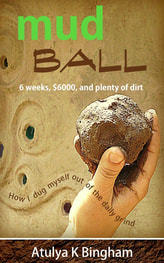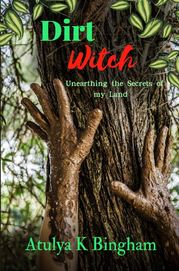|
“How do you resist the temptations of capitalism? Get a haircut? Clothes pegs? Pensions and health insurance?” It was a question from one of our Patreon members. The answer is I don’t. The fact that you are reading these words posted onto a website that I pay a number of corporations for, is proof of that. It was a good question, though. A good question provokes thought. It searches beyond the appearance of things and wonders about the underlying structure of it. It provokes a blog post from me:) Me and Money Money and I have shared a long, bumpy road together, and at times we’ve not been the happiest of travel partners. Once upon a time back in the noughties in Antalya, Turkey, I was earning a packet and spending more than a packet. Often on nonsense. Next (it shouldn’t be too hard to see why) I bankrupted myself, found myself in debt and out of energy. Thus began the Mud Mountain adventure, where I huddled fairly close to the poverty line and simultaneously felt ecstatically happy. For almost five years I lived from hand to mouth, threw hardly anything away, had no car, no health insurance, no pension. It was the most beautiful, fulfilling, magical time of my life. And it made me understand that there is something far more powerful and profound within us than we realise. So... for a time there, I was of the opinion that money was the root of all evil. That if we obliterated the green scourge, and toppled the capitalist edifice that housed it, everyone would wake up to the beauty of their soul, and all our problems would vanish in a pink puff of idealistic smoke. Hmm. The wonderful thing about being human is that we are not ossified ideologies. We are living, breathing, evolving organisms. Since 2011 when I first moved onto Mud Mountain in a tent, the world has become a completely different place. You and I are completely different people, too. It’s only eight years, but everything has changed. So if our ideas haven’t transformed alongside, we need to worry, because it means they are becoming dogmas. What do I think about capitalism? People yabber about capitalism a lot, and usually feel rather clever when they do. But when we talk about capitalism, what do we mean? Are we talking about the industrial profit-based economic structure that followed feudalism (which wasn’t too great either) as discussed by Marx back in 1867? Are we talking about globalisation and multinational companies? Are we referring to the monetary system and the banks? Do we mean the market economy*? Do we view buying a home-grown organic tomato from our neighbour as indulging in capitalism in the same way as buying a handbag from Prada, or a Bugatti? There are two reasons I am today very ambivalent about the capitalist/anti-capitalist debate. First, most of it is based on the ideologies of a very small number of political and economic thinkers from one particular culture. All were alive a century or more ago (Marx, Engels, Keynes, etc), all were middle class, and frankly it shows. When these chaps were penning their theses, the world was an entirely different entity. There was basically no environmental issue at all other than on a very local level. When the presiding economic theories were born, no one was seriously considering the idea that we could run out of resources. Women had no voice. Indigenous folk and their lifestyles were considered by most ‘intellectuals’ as primitive. There was no internet. No microchips. No plane travel. Dead? My God, these ideologies are fossilised by now, and I can’t quite believe we still buy into them. There is an idea that if we get rid of capitalism, all our environmental worries will be over. I’m sceptical about that, not least because socialist and communist countries in the past have caused as much environmental degradation as capitalist ones. The eco-crimes the Soviet Union committed in areas like Kazakhstan (check out what used to be the Aral Sea, or the nuclear bomb tests in Semipalatinsk) are pretty hard to stomach. Clearly the common denominator for environmental care isn’t, as a good tranche of environmentalists claim, simply market forces. It’s above all about consciousness and Self+Earth awareness. For me, right now, the level of the general enviro-economic debate is exasperating. Come on! We need something new, not half-new. Not 1968. New. The Root of the Issue I’ve stayed in many alternative communities in my life, some places where no one even used money, and have learned to my chagrin that you could stick humans in paradise, make every single one a millionaire, give them whatever they wanted, and they’d still moan, backstab, cheat and fight. Take away money. Take away capitalism. I guarantee, humans will still be the same disputatious and miserable bunch of egos they were before. Sorry to say. Why is that? Why? Why can’t we be content and work together? Because, as I learned when I moved onto Mud Mountain back in 2011 and my old mindset was peeled away by the dirt-streaked fingers of nature, the problem isn’t out there. Anyone who is at one with themselves, who is grounded in their soul and has awakened to the sheer joy of who they really are and belong to, no longer needs much at all. They don’t care if people like them or hate them, they don’t see hierarchies, they don’t need to squash or manipulate people to get what they want, they don’t need people to admire their house or their car. They are complete and powerful. Not this lamentable baboon-beats-chest and points an assault weapon in yer face kind of ‘powerful’ (which is not power at all but a sorry state of inadequacy), but the kind of powerful that makes miracles and inspirational wonders arise apparently out of nowhere. Until we are all complete and fulfilled, until we find our true sense of belonging and self-worth, we’ll keep on stealing, fighting, manipulating, objectifying, competing, wasting resources, destroying ecosystems, and feeling scared, or belittled, or inadequate. We’ll also be unable to come up with a better way of organising our socio-political or economic structures. Because we’ll always be coming from a place of utter disempowerment, rather than maturity and wholeness. All of today’s structures are reflections of ourselves, and our psyches. The current expression of capitalism is no different. It feeds on and blooms out of a starved, immature soul. So personally, I’m not too convinced by the cobweb-draped socialist/capitalist thing. That doesn’t mean the structures in and of themselves aren’t damaging, though... The Structural Impact It is true, the current economic model of psychotic growth actively strives to suppress any kind of psychological health, democracy, inner depth or environmental care. Commercial marketing aims to create infinite amounts of fear, desire or pain just to sell a product. That’s why I created a Patreon page. I’m fascinated by alternative economic models and income bridges, and thus experiment with a platform model that sustains what I do without pandering to “the market.” I love that it allows me to write all manner of posts, be genuinely helpful, and not consider profit. I also love the community it has generated. But let’s get clear, despite the hours I plough in and its popularity, I am not sustained by crowdfunding alone (and I live very cheaply). The truth is, we are so entrenched in the commercial mindset, we only respond to its clamour. If we can get away with paying nothing, often that’s what we do. We may talk the talk and bemoan The System, but when push comes to shove, where do we throw our cash? Which is why I’m currently operating a two-thirds non-commercial, one-third commercial venture, where I create a massive amount of free material for everyone funded by Patrons, but have a small number of high quality ‘products’ which I live off. Because right now that’s what people are willing to feed me for. And (in answer to the question above) I still don’t have a pension scheme, though I do now have health insurance, thanks to Spanish residency requirements. Now, I could I suppose could dig my heels in, shut down The Mud Home entirely, go back to my mountain and live virtually money-free. After two years on the road, I can see the lifestyle with the smallest environmental footprint is beyond all doubt, the tiny off-grid homesteading one. Nothing else comes close. It is extremely difficult to live sustainably or regeneratively any other way. It’s also absurdly inexpensive. But from my own personal experience, I don’t think moneylessness is the way. My next book Filthy Rich will chart that adventure, and where it ultimately leads. Bad Money In short, what I see has happened is this: Pretty much everyone working in any ethical domain perceives money as bad. They think they shouldn’t have any. And the trouble with this philosophy is that if we say only unethical monsters have money (and money is a very useful tool for getting shit done, for raising awareness, for planting forests, investing in alternative energy research, and protecting wildlife), we are creating a self-fulfilling nightmare where ecocidal psychos hold the wealth, and all other people are at their beck and call. It means they have control of the media, the resources, the tech, and the political system. It severely limits our ability to make an impact. So I no longer subscribe to the moneyless reality. Neither should you if you are involved in meaningful ethical work for this planet. Yes, there are fairer exchange systems that don’t involve banks, but they are not functioning yet, so money is what we have. It’s a tool. That’s it. Personally, I’d like the psychos who steal our freedom, burn our forests, and use war to fill their pockets, to be poor and disempowered! I’d prefer light-filled, Earth-protecting humans to own the wealth. This is why I’m quite happy to pay my local eco-vendor for vegetables until I set my own garden up. I want to empower that person. It’s why I don’t mind paying my local hairdresser every six months. The poor woman has a child to feed. How else is she supposed to live? It's also why I love that I'm off-grid and don't give a single cent to an energy company. I want to starve them. Money in and of itself isn't the issue. It's what we as a species value and aspire to is that needs to change. We also need to clarify collectively that some things are too sacred to enter that exchange system (love, human bodies, rivers, forests, other living creatures). We need to think way bigger than we currently are. We need to consider things like how to base an economy on creation and regeneration rather than destruction and abuse, and whether in fact energy and transport has to exploit natural resources at all. We've put humans in space, we've connected the entire world with a wireless communications web. If you tell me we can't create a regenerative economy, I'm not going to buy it. Stepping Up into a New World Humanity is facing all manner of issues right now. But whether I look left or right, the discussion is so limited in its outlook, it’s like listening to endless radio static. To solve the questions in front of us, it’s not adequate to hark back to Marx, or some other fossilised old twit. It’s no good leaping on the neo-liberal greed and gravy train either. Because the problem has long, crusty old roots that delve far deeper into our psyches than modern economic theories. The real problem is that Humanity has an abundance issue. All of us; from the richest to the poorest, live in a mindset of lack. We have no faith that the planet can support us. We have no trust that without X amount in the bank we will survive (despite literally millions of examples of people surviving without a dime, and millions of others still dying despite a stack in the bank). Whether we are greedily accumulating in an attempt to ward off some imagined destitution, or hating the rich while secretly coveting their wealth and always wishing we had more, the emotional seed is the same. It’s an old, old survival program, and we need to move beyond it. Because it’s not planted in truth. How is Life Really Sustained? When I step away from the internet prattle and really spend time watching the improbable array of life bursting and crawling and flying and twittering and digging and spinning webs in my terrain, I soon feel I’m in some kind of alternate wonderland. In the magical world of Gaia, things manifest in the strangest of ways. Enormous trees grow from things that look like motes of dust. Infinite pools of consciousness co-exist with finite fleshy bodies. Tiny, fragile seedlings that I could break with my index finger somehow crack through tarmac. On this incredible planet, the craziest, most dreamlike of creatures survive and thrive, and God only knows how. Humming birds, elephants, platypus, glass frogs, birds of paradise, sun fish, spider crabs, octopodes, hippopotamus, giraffes. If we pause and really observe them, the very fact these beings even exist ought to bend open the bars in our brain prisons at least a little. Even something, say, as common as a butterfly is mind-blowing. How? How did it turn from a maggot into this colourful, symmetrically-patterned wonder? How could it possibly ingest its entire body and transform into an entirely different creature? Yes, we can call it metamorphosis and think we understand, but we don’t. It’s insane. I tell you, if I went up to the vast majority of economic and socio-political commentators and said, “Look Pete, I’ve come up with an idea for a living entity that starts life as a worm, and then weaves an awesome silken bodysuit around itself, hangs upside down for a month, eats its own body and uses it to build a flying machine, and the wings will be about 100 times bigger than the worm was, and covered in shimmering rainbow dust, and the pattern will be perfectly symmetrical and beautiful,” I guarantee you Pete would give me one of those looks, and send me straight to the Flat Earth end of the internet. This is what we don’t seem to quite have mastered yet. Life on Earth isn’t a 2 + 2 = 4 kind of a place. It’s something far more interesting. Something far more creative and imaginative. And so are we. We can do so much better than tired old polarities and poverty mindsets. We really can. We’re butterflies wriggling around in a mesh of our own making, eating ourselves alive right now. That cocoon has become too tight. It hurts. It burns. But who knows what we’ll be tomorrow? Who knows what we’ll have created? Alternative Economies For an argument on how the market economy is not capitalism, see Dave Darby’s super post in Low Impact. Other interesting ideas regarding alternative economies include: Sacred Economics by Charles Eisenstein Donut Economics by Kate Raworth Being a contrary sort of a person, I'll never follow one 'Testament', or one solution. For me these are all creative ideas to build upon, expand or digest into something new. Evolution is a path, not an ideology. And one of the main limitations of economic models (that I've seen) is no proper discussion of the crucial difference between physical/material resources (which are finite, therefore risk becoming unsustainable) and non-material services/energy/gifts/ideas (which are potentially infinite). The line between the two is often unclear of course, but I think it is a better understanding of this difference that holds the key to creating a sustainable or regenerative economy. Do you value these posts? Do you enjoy The Mud Home’s free content? Please consider contributing to the running costs on Patreon and being part of an alternative economic experiment. All patrons have access to a monthly patron-only video where I share my latest, very inexpensive, creations from my land. And the stories that go with them. Many thanks to The Mud Sustainers and everyone who has had faith in The Mud Home and is supporting these posts on Patreon.
9 Comments
|
Atulya K Bingham
Author, Lone Off-Gridder, and Natural Builder. Dirt Witch
"Reality meets fantasy, myth, dirt and poetry. I'm hooked!" Jodie Harburt, Multitude of Ones.
Archives
November 2022
Categories
All
|

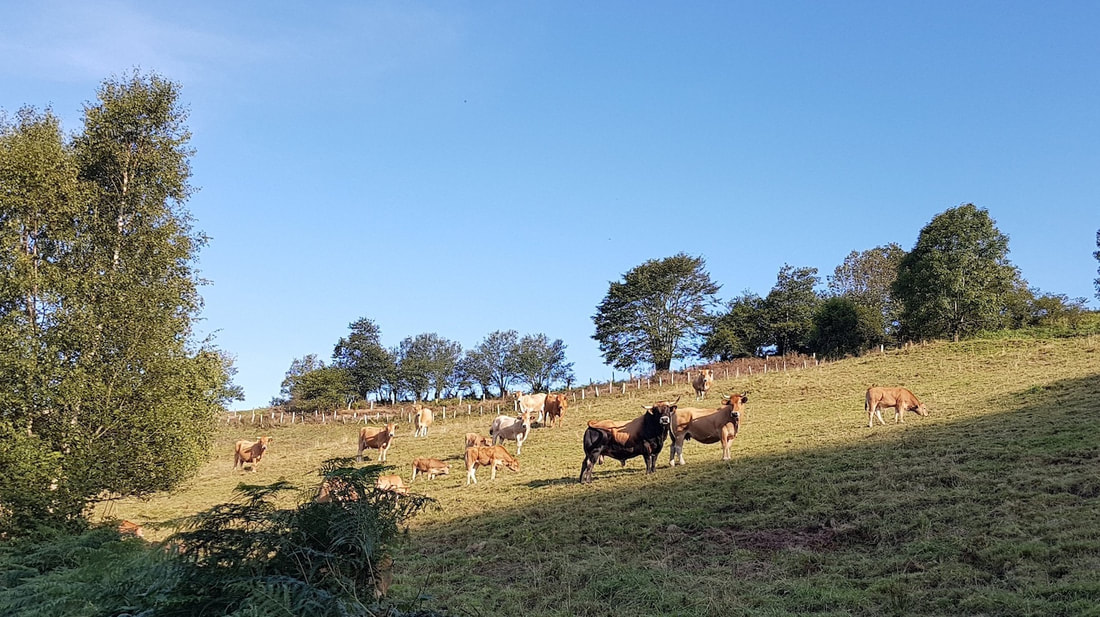
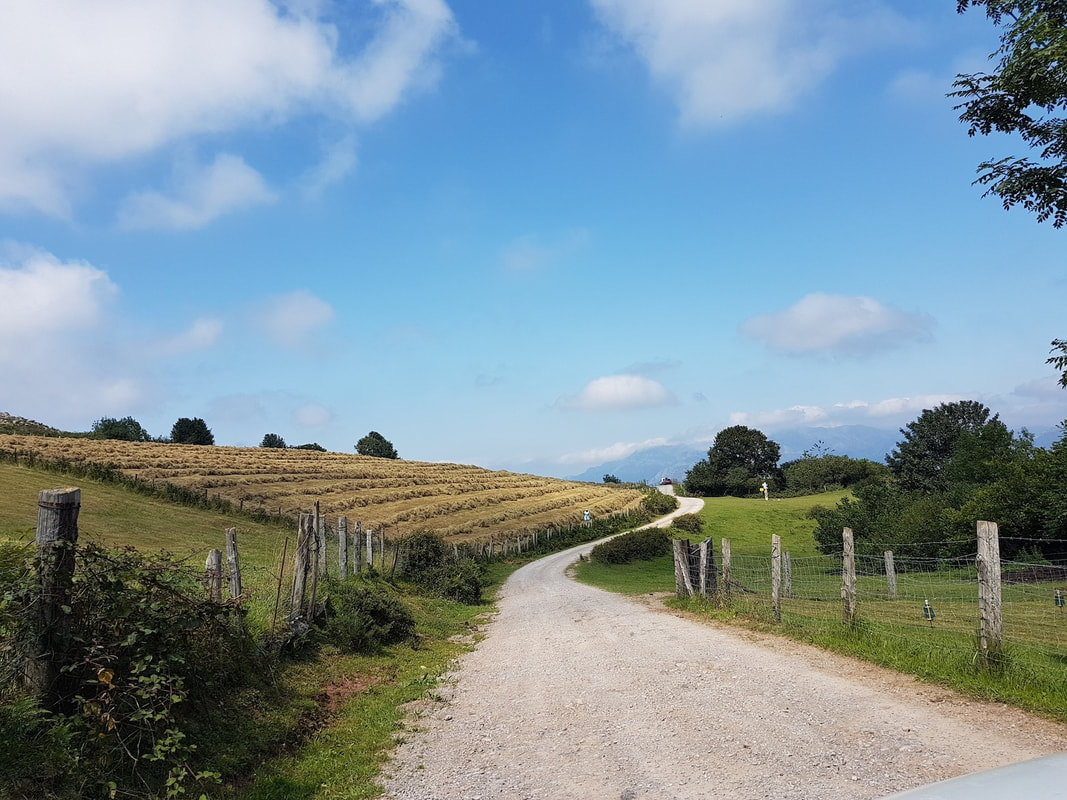
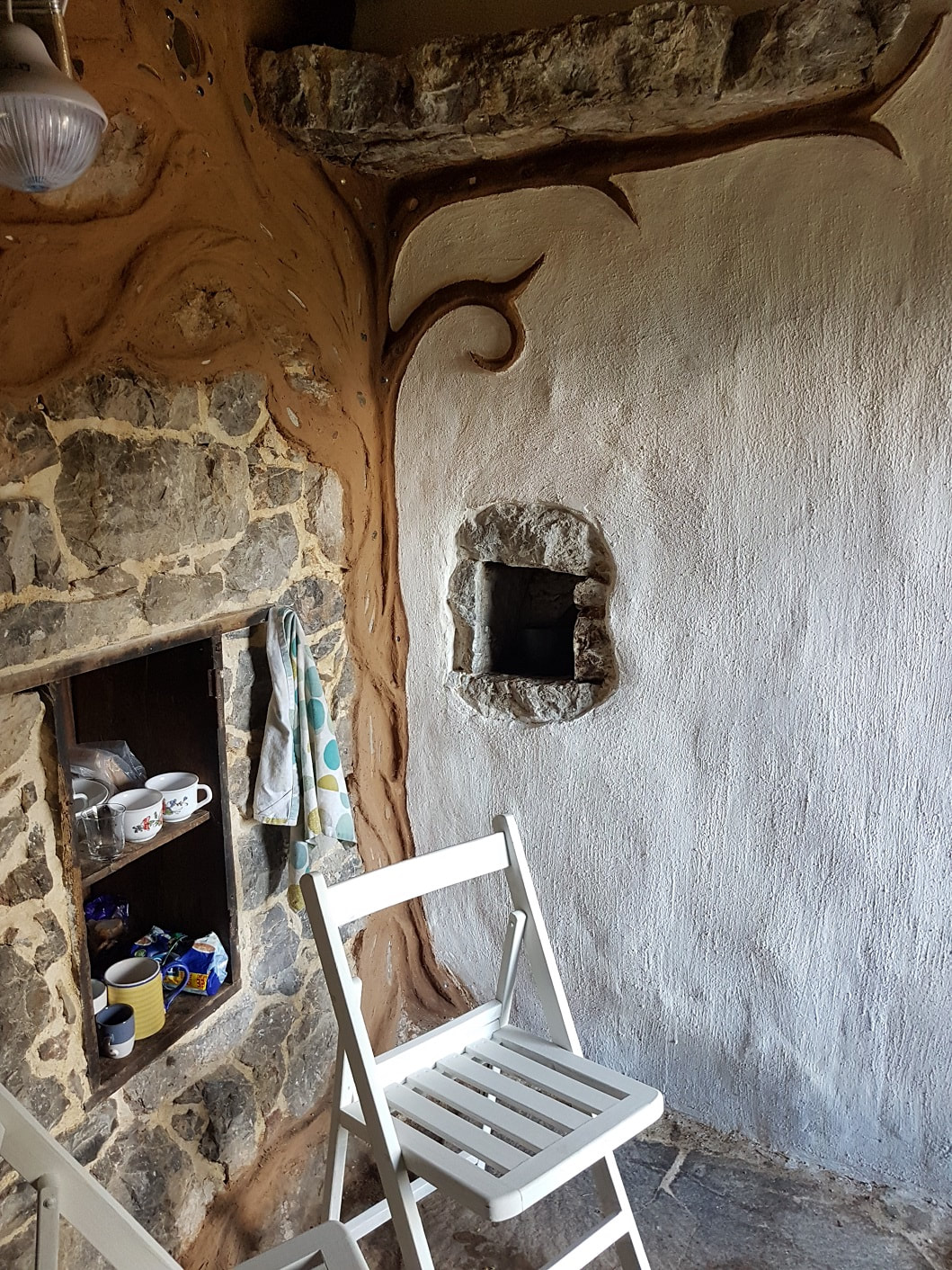
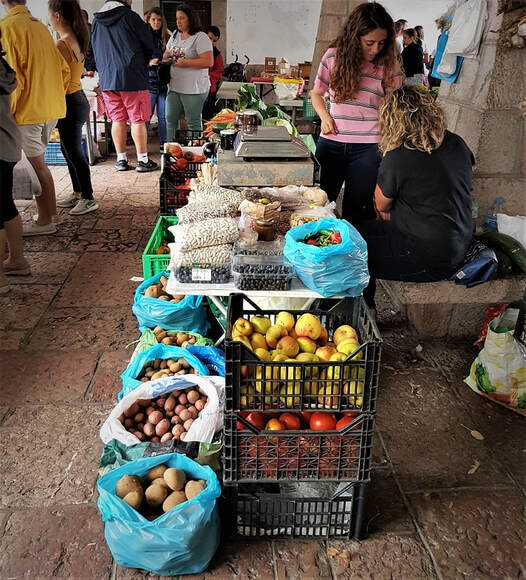
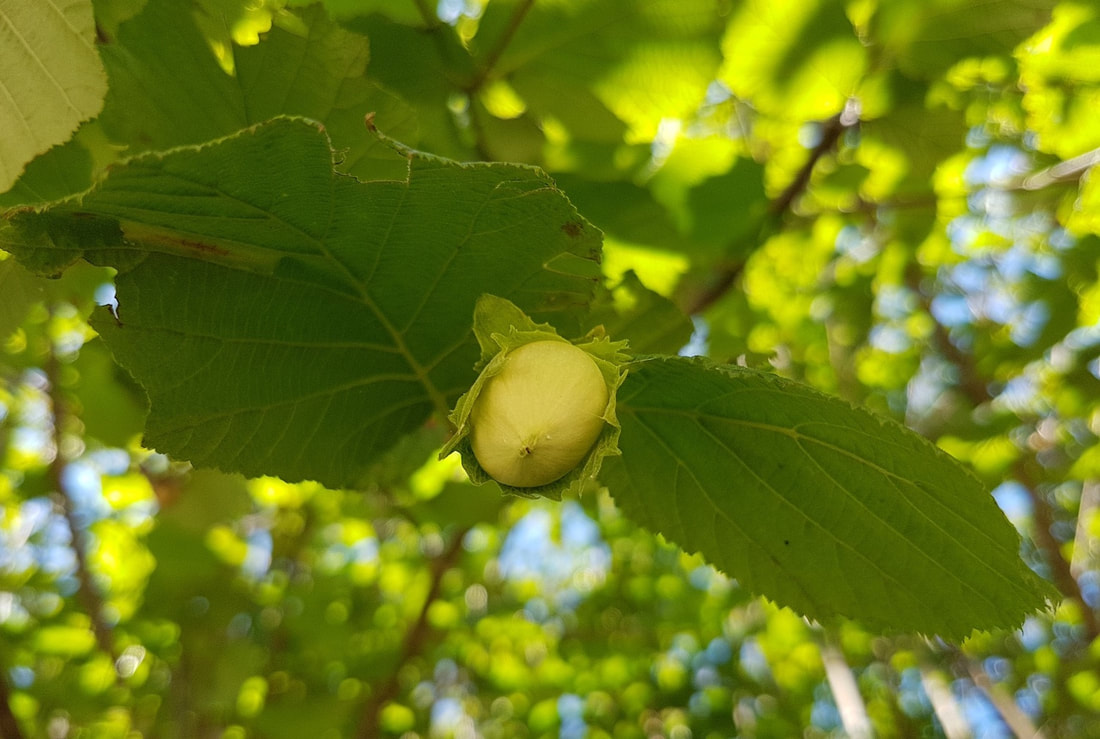
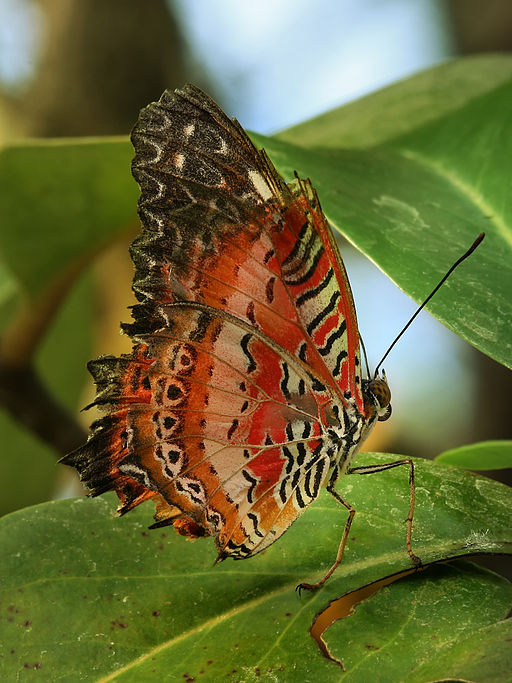

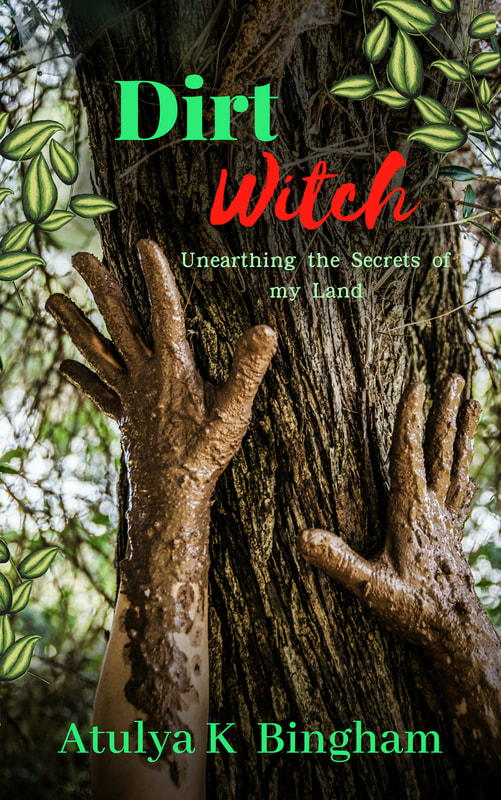
 RSS Feed
RSS Feed
